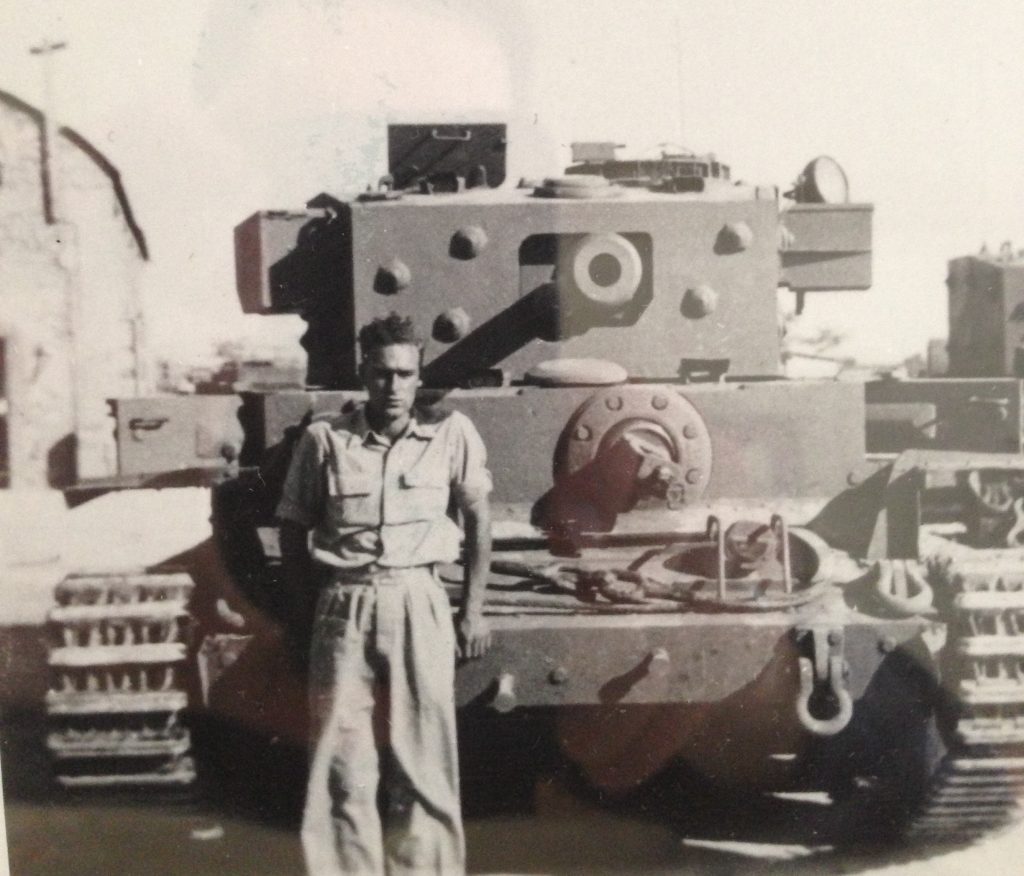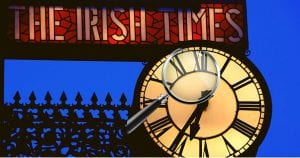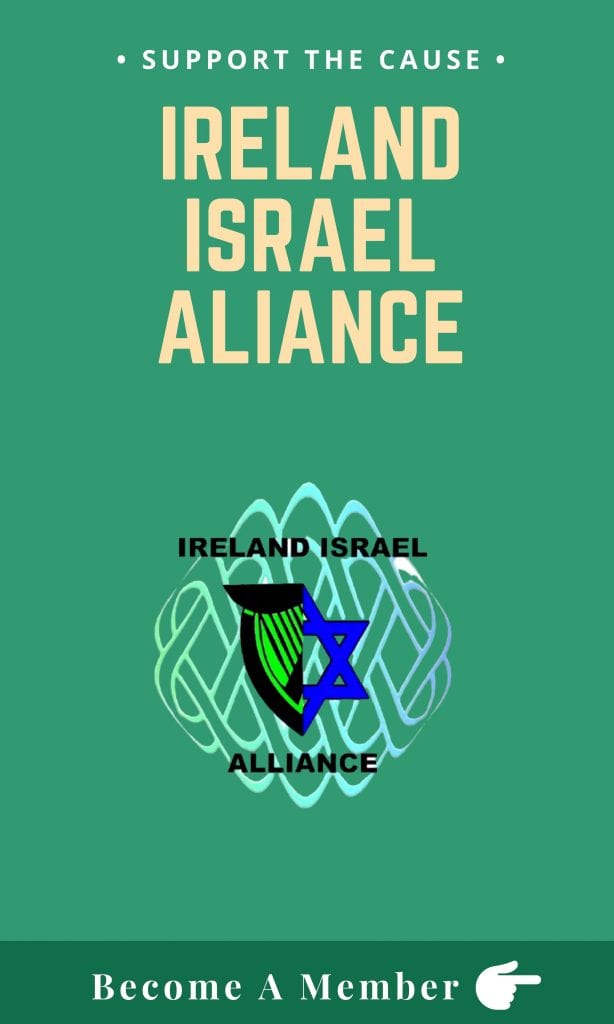Flanagan’s decision to outwit his superiors was a pivotal moment in his own life but also a turning point in the history of Israel and the history of the entire Middle East.
The town of Foxford in County Mayo in the west of Ireland is situated at the intersection of two national routes – the N26 and the N58. The picturesque and neat town with a population of roughly 1400 also sits on the River Moy as it flows north towards Killala Bay. The town is famous for its fishing and also for its woollen blankets, which the local mill has been creating since 1892.
Something in the water?
Who knows whether it’s something in the water of the river or the blood of the people but – vastly out of proportion to its small population – Foxford has produced men who have become military heroes in distant countries.
The most famous of these is Admiral William Brown who is credited with being the founder of the Argentinian Navy as well as having fought in that country’s war of independence. A statue of Brown stands in the town along the River Moy on a promenade named after him.
A more recent example is Mike Flanagan who became a hero to a people with a history far longer than that of the Argentinians. Yet Argentina was already over 130 years an independent state when this nation re-emerged once again as a free entity on the international stage.
Born in 1926, Flanagan was only 16 when he enlisted in the British Army. He participated in the D-Day landings in Nazi-occupied France in June 1944 and also took part in the liberation of the Bergen-Belsen death camp. He later served with the British Army in Berlin before being posted with his regiment to India, Syria, and finally to the British Mandate of Palestine. While no doubt the horrific scenes at Bergen-Belsen played a part, it was there that his pro-Zionist sympathies really came to the fore.
After the British withdrew from the Mandate in May 1948, following Israel’s declaration of independence, Flanagan remained at Haifa with a small group of British soldiers which had stayed on to oversee the loading of heavy equipment onto the waiting ships in Haifa Bay. At that stage, the area around Haifa port and airport was still under the control of this small garrison.
No love lost between British and Zionists
While ostensibly neutral in the coming conflict between the new State of Israel and its vastly more numerous Arab neighbours, the British were regarded by Zionists as the enemy. They were preventing Jewish refugees from entering the territory, interning them in horrific conditions in places such as Cyprus and there had been open conflict between Zionist groups and the British in the 18-24 months before Israel’s declaration of independence.
Indeed, if there was any cooperation between the British and either side in the conflict, it was between the British and the Arabs. The Royal Jordanian Army was trained and led by British officers. It was arguably the best of the various Arab armies that invaded Israel after its declaration of independence with the intention of crushing the fledgling state.
An encounter in a café
Nevertheless, the Zionists recognised that some individuals in the British Army were more sympathetic to their plight. During this period, Mike and a colleague of his, a Scottish soldier called Harry MacDonald, frequently visited a café in Haifa. It was during one of these visits that they encountered a Haganah agent, to whom they sold a truckload of cans of petrol. These cans were initially meant for destruction to prevent them from falling into the wrong hands.
Having established contact with the Haganah, Flanagan and McDonald were convinced to participate in an audacious mission to acquire four tanks from the retreating British garrison for the newly formed Israel Defense Forces.
The initial plan had been to take four Cromwell tanks that were being used by the British Army to guard Haifa airport and the surrounding area. On the night in question in late June 1948, Flanagan and McDonald volunteered to take midnight guard duty at the army camp. Flanagan and McDonald took a tank each while two members of the Haganah group took the other two. The soldiers smashed the tanks through a side gate and used side roads to make their escape.

Things started to go slightly wrong after that. The two Haganah members were intercepted and transporters that were meant to be provided by the Israelis for the tanks didn’t turn up. So, the two men had to drive the tanks all the way to Tel Aviv. When they arrived there, they were recruited into the newly-formed Israeli Defence Force’s 82nd Tank battalion’s “B” Company.
A daring and risky plan
It’s no exaggeration to say that this was a daring plan. If caught, the theft of the tanks would have incurred the fury of their superiors and would have resulted in lengthy prison sentences for both men. Ever the believers that there are no eternal allies or perpetual enemies, merely eternal and perpetual interests, the British knew that in the coming decades, access to Arab oil would be very important in the running of their economy.
This was especially important when faced with the threat of the USSR with its ability to exploit natural resources across its vast territory. Any sense from the autocratic regimes in the newly independent Arab countries that the United Kingdom was sympathetic to this tiny new state on the eastern shores of the Mediterranean would have been fatal to British interests in the region.
However, the two men had thrown their lot in with the Israelis having effectively deserted from the British Army. They were promised a fresh start in Israel with new identities and went to fight with the Israeli forces as they successfully repelled the Arab invaders.
A new country and a new name
Flanagan converted to Judaism, changed his name to Michael Peleg, and married an Israeli soldier with whom he had a son and daughter. 1948 was by no means the last time he saw military action. He also took part in subsequent conflicts such as the 1956 Sinai Campaign, the 1967 Six-Day War, and the 1973 Yom Kippur War.
Following the death of his wife, Flanagan moved to Canada and remarried there, passing away on January 26, 2014. His body was repatriated to Israel and he now lies in the cemetery in Sha’ar HaAmakim (a kibbutz in northern Israel where he spent much of his life) alongside his wife and son.
The two tanks are currently on display at the Armored Corps Memorial Site and Museum in Latrun in central Israel. Two tanks might not seem a major contribution to an army but – such was the parlous state of their military materiel that – these vehicles were literally the first armoured vehicles that Israeli forces got their hands on.
A debt of honour
Commenting after Flanagan’s death in 2014, Lt. Col. Michael Mass, the vice president of the Museum said, “We owe Flanagan a debt of honour. The two [Cromwell tanks] helped us greatly in the battles of the War of Independence and he himself fought bravely in our ranks. Today we will take our leave of him and salute his memory.”
Recognising his outstanding contributions to the formation of the Israeli Defense Forces (IDF), Mike Flanagan received several awards after his death. Among these is the Medal of Valor from The Wiesenthal Center in the United States, and he has also been honoured by the IDF.
Flanagan’s decision to outwit his superiors and take part in the stealing of two tanks wasn’t just a turning point in his own life. His defiant actions on that warm June night in Haifa exactly 75 years ago today were arguably also a pivotal moment in Israel’s battle for survival and hence, in the history of the entire Middle East.
By Ciarán Ó Raghallaigh




